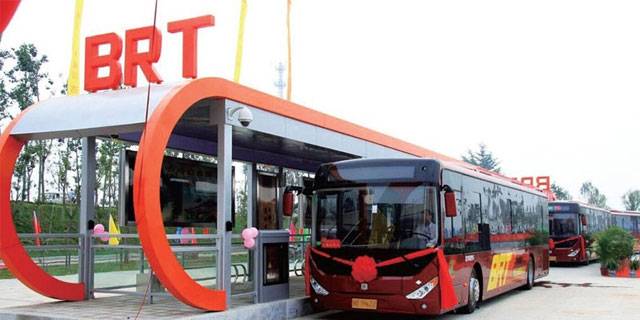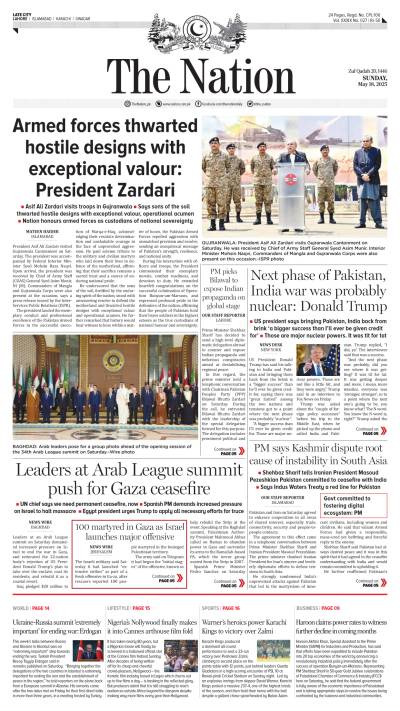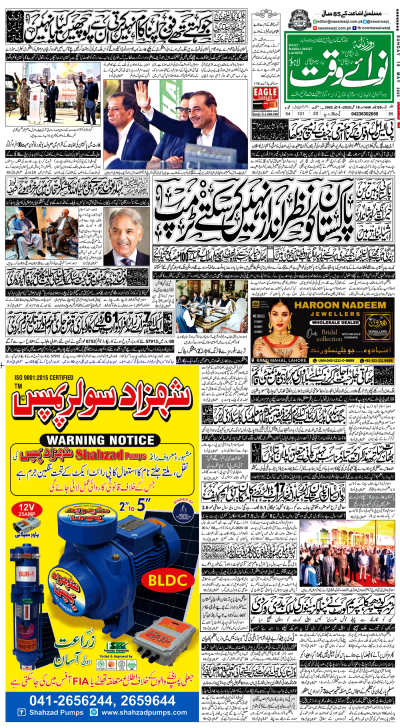ISLAMABAD - The cost of Peshawar Metro, Peshawar Sustainable Bus Rapid Transit Corridor Project (BRT), has increased by 38 percent from Rs49.3 billion to Rs67.9 billion and the Planning Ministry has said that proper working on the design of the project was not carried out at the preliminary design stage which has resulted in such a huge increase.
From preliminary design phase to detailed design phase, there are generally no major deviations as is in this case which have resulted in 38 percent increase in cost from the original, said the Transport &Communication Section of the Planning Ministry said in its comment on the revised PC-I of the Peshawar Sustainable Bus Rapid Transit Corridor Project (BRT).
Despite decrease in the number of buses and reducing the stations the cost of one kilometer, of ill planned BRT, has increased from Rs1.8 billion to Rs2.3 billion, said the revised PC-I of the project.
The revised PC-I will be discussed by the CDWP Monday (today). The government of PTI in the province has ended but the people of KP is still paying high price for the defective planning and lose management in the execution of BRT.
Peshawar Sustainable Bus Rapid Transit Corridor Project (BRT) was started in December 2017 by the then PTI government with an estimated cost of Rs49.3 billion and its entire work will be completed by February 2019.
In the revised PC-I the sponsoring agency of BRT claimed that quantum of work and cost estimates increased after detailed design was carried out as the original approved PC-I was based on preliminary design. Moreover, variations in the design and scope accrued as per site requirements owing to Right of Way (ROW) and social constraints which has resulted in the cost increase by more than Rs18 billion or 38 percent.
Besides depreciation of Pakistan rupee against dollar has also played a role in the cost hike.
However the Communication Section said that that proper working on the design of the project was not carried out based on ground conditions/investigations at the preliminary design stage.
From preliminary design phase to detailed design phase, there are generally no major deviations as is in this case which have resulted in 38percent increase in cost from the original.
The revised project envisages construction of 27.343 km long dedicated signal free BRT corridor out of which 11.766 km will be at grade, 12.635 km elevated and 2.742 km through underpasses. In addition to the main BRT corridor, additional elevated structures having total length of 1.653 km will also be constructed.
The BRT corridor starts from Chamkani on GT Road and terminates at Karkhano Market on Jamrod Road. Along the main BRT Corridor, there are total 30 stations out of which 20 are at grade and 10 are elevated.
At the initial stage, there will be total 8 BRT routes out of which the main signal free BRT corridor is going to be built as dedicated from Chamkani to Karkhano Market whereas other 7 off-site BRT routes 68 km in length will serve as feeder routes covering major trip generation areas of the city: Charsada Road, Warsak Road, Kohat Road, Bara Road, Ring Road, and Jamrud Road.
The original approved PC-I was to be funded jointly by the ADB and Government of KP. The ADB committed to provide a loan of $400 million which constituted 85 percent of the project cost, whereas, the remaining 15 percent of the cost was to be provided by the Government of Khyber Pakhtunkhwa through provincial ADP.
The ADB however, due to its other commitments, expressed its inability to fund the entire amount of $400 million and agreed to fund $335 million and to bridge the funding gap through it co-financier AFD.
According the sustainability of the project, the PC-I said that the infrastructure routine maintenance cost will be around Rs505.00 million per annum. Average cost for bus operations will be Rs1,813 million per year, while the average operational cost for station and ITS per year shall be approximately Rs1,256 million.
The Planning Ministry further commented that the revised PC-I states that International Competitive Bidding (ICB) has been carried out for the selection of contractor, however, local firms were selected for execution of works on the project.
The sponsoring agency should provide documentary evidence that international tenders were called for the project and reasons for non selection of an international construction firm.
The initial daily ridership demand in the original PC-I was projected at 472,911 in the opening year whereas the same figure in the revised PC-I page 14 is 425,000. With the extension of BRT from Hyatabad to Karkhano Market in the revised scope, the daily ridership should have increased instead of decreasing, the planning ministry said adding that the Sponsoring Agency should explain this position.
The transport section of the Planning Ministry further said that in the original PC-I, provision of 450 AC buses having 9m, 12m and 18m length was made with diesel fuel type. However, in the revised PC-I the number of buses have been reduced to 383 having 12m and 18 m lengths with Diesel - Hybrid - Electric type.
The sponsoring agency should provide cogent justification for reducing number of buses along with changing the fuel type from diesel to diesel-hybrid-electric.
It may also be pointed out that in the original PC-I, there was provision of diesel type and in case any agreement for procurement of buses having hybrid or electric type will be without approval of the competent forum and falls in violation of set rules.
The sponsoring agency should confirm whether any such agreement has been made for procurement of buses having electric or hybrid fuel type.
The sponsoring agency should provide justification for reducing the number of stations from 32 to 30 in the instant revised PC-I. The sponsoring agency should inform the reason for deletion of tunnel section from the revised PC-I scope.
The sponsoring agency should provide reasons for deletion of bike sharing provision at University of Peshawar from the revised project scope along with its cost affect.






